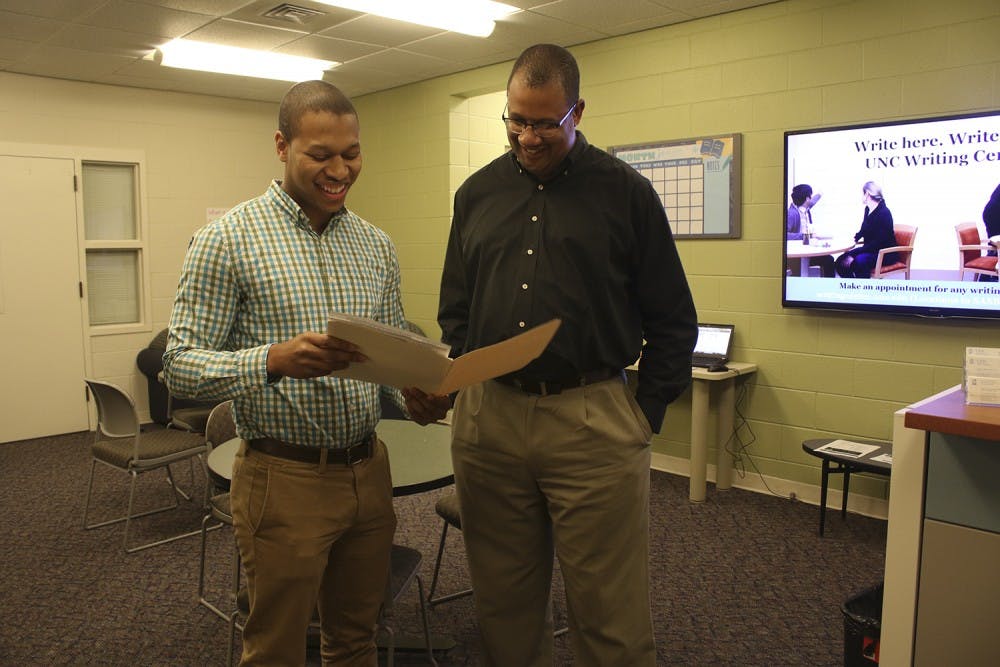Allen O’Barr, director of Counseling and Psychological Services, said stories like Fockler’s — students “stopping out” to manage stress —are not out of the ordinary.
“It actually happens quite frequently,” O’Barr said.
If students come to CAPS and seem like they are not benefiting from being in class, they are often advised to take a semester off.
“It’s not a mandate. It’s just a recommendation,” O’Barr said. “If we ever see someone who is really performing poorly academically, we generally suggest taking a little time off to get themselves together psychologically so they can perform better.”
O’Barr said many factors, such as anxiety, depression or relationship issues, can lead to this decision.
“Academic success requires an individual to be functioning well most of the time,” he said.
Senior Filly Jones experienced some of these emotional triggers when deciding to take time off.
“I had a lot of stuff going on emotionally for a long time — since I was a freshman. It all kind of built up to a point that I was off track,” Jones said.
Jones, an African, African American and diaspora studies major, withdrew during 2014-15 winter break and took off spring and fall 2015.
“I didn’t know where I was going or what I was doing,” Jones said. “I decided I needed to take a step back.”
Jones said taking time off helped her develop professional skills.
“It was a good time for me to dedicate myself to work and figure out what I want to do and go back to school with the mindset to work and be focused,” she said.
To get the day's news and headlines in your inbox each morning, sign up for our email newsletters.
Jones said the process of leaving wasn’t difficult. Because she left between semesters, she just checked the withdrawal option on ConnectCarolina.
Now she’s transitioning back into school. With only 12 hours left to complete her degree, she is back as a part-time student this semester and will finish in two semesters while working full time.
Experts’ advice
Chris Faison, coordinator for UNC Men of Color Engagement, said money issues and family difficulties are one of the two main reasons students stop-out, especially students of color.
Eric Johnson, assistant director for policy analysis and communications for the Office of Scholarship and Student Aid, said taking a semester off isn’t always the solution for financial insecurity.
“In general, it would be better to muscle through, take out some loans if you need to complete the semester of school and then graduate than to stop-out, try to save up money and then come back,” Johnson said.
“Once you’ve made that break in school, it’s often hard to come back.”
Johnson said students don’t always know that financial aid can change during the year if circumstances change.
“We want to do what we can to keep you enrolled,” he said.
Faison said the many resources on campus to help struggling students aren’t always obvious.
“The Learning Center does a really good job from what I can tell,” he said. “Academic Advising, but in particular, the Hardin Hub. They are an extension of advising, and they have extended hours. Students of color tend to utilize that resource as well.”
Faison said the Hardin Hub’s hours and location on South Campus make it easier for students to find the time to go compared to the Steele Building location.
“I don’t think enough students reach out or know about us when things are going on,” Faison said. “A lot of the time, after they leave, they’ll come back and find out about us.”
Fockler said students considering taking time off should weigh the consequences before acting.
“If you feel like the stress is too much, the school will always be here,” Fockler said. “But have an idea of how you’re going to fix whatever it is you’re trying to fix.”
Jones warned students not to waste time if they know what they need.
“My grades would have been so much better if I had taken a break when I wanted to,” Jones said. “At the end of the day, if you have to take time off to finish strong, that’s what you should do.”
university@dailytarheel.com



